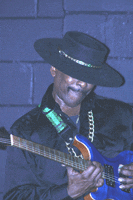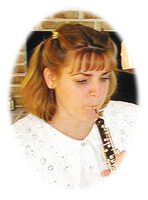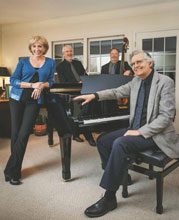Beethoven broke the classical mold with his “Kreutzer” Sonata. Thus far he had worked to refine the earlier Classical style of Haydn and Mozart.

But now at age 33 he was ready to explore new musical territory. The first convention to go was the genteel relationship of violin to piano, where keyboard had predominated. The Kreutzer Sonata, by way of contrast, begins with unaccompanied violin and thereafter presents the two instruments in a mix of complex and thrilling roles.
Deemed unplayable by its dedicatee, Rudolph Kreutzer, the sonata was ultimately premiered in 1803 by Beethoven himself at the piano, and a young virtuoso (George Bridgetower) dubbed “The African Prince” by an adoring Viennese public. From first-hand accounts we learn the concert began at 8:00 am one Sunday morning, required the violinist to peer over Beethoven’s shoulder at a just-completed revision, and drew such accolades that portions of it had to be repeated. A far cry from today’s classical music recitals!
Whereas Beethoven sketched, fleshed out and revised, the early 20th century Czech composer Bohuslav Martinu wrote rapidly and never second-guessed himself. His resulting catalog is huge and of somewhat uneven quality, but among the clear winners are several sets of madrigals for two and three instruments.
Madrigals are simply songs from long ago, and any contemporary music by that name is likely to recall the troubadours, with their songs of love and derring-do. Martinu’s Three Madrigals for Violin & Viola fit that bill exactly. Like a close brother and sister, violin and viola engage in a series of colorful dialogs whose tremulous trills, languorous andantes, plunging scales, and arching arpeggios are themselves the subjects. While there is no specific text, listeners can easily recall Chaucer’s Canterbury Tales, Cervantes’ Don Quixote, or Carl Orff’s Carmina Burana.
To conclude this concert, CMHH musicians have selected a dramatic piano trio by another Czech composer, Bedrich Smetana. Smetana, known today mainly for his orchestral tone poems, wrote only three pieces of chamber music, but each chronicles a particularly difficult period in his life.
The G Minor Piano Trio is dedicated to Fritzi, the Smetanas’ five-year old who had just succumbed to scarlet fever, the third of their daughters to die in childhood. The opening soliloquy is fierce, indeed, and there follows a mosaic of moods. What is so inspiring about the music is that remembrances of tenderness and joy win out over anguish and despair. It is one of Smetana’s best pieces and deserves to be heard more often on chamber music concerts.
Performing in this program are CMHH regulars Melissa Barrett, Tristan Lehnert, and Asako Kremer, violinists; Yvonne Johnson, violist; Angela Maleh, cellist; and Jean Shamo, pianist. British pianist Daphne Spottiswoode makes her second appearance with the ensemble.
The concert is at All Saints Episcopal Church, 3001 Main Street, Hilton Head Island and begins at 7:30 pm. Tickets are $18 and may be purchased online or at the door. Information at 843.681.9969 or www.cmhh.org.






